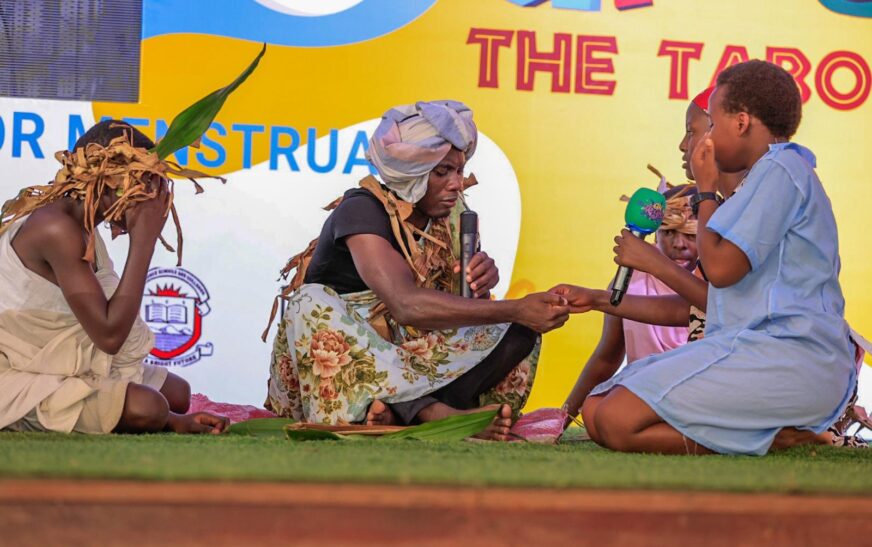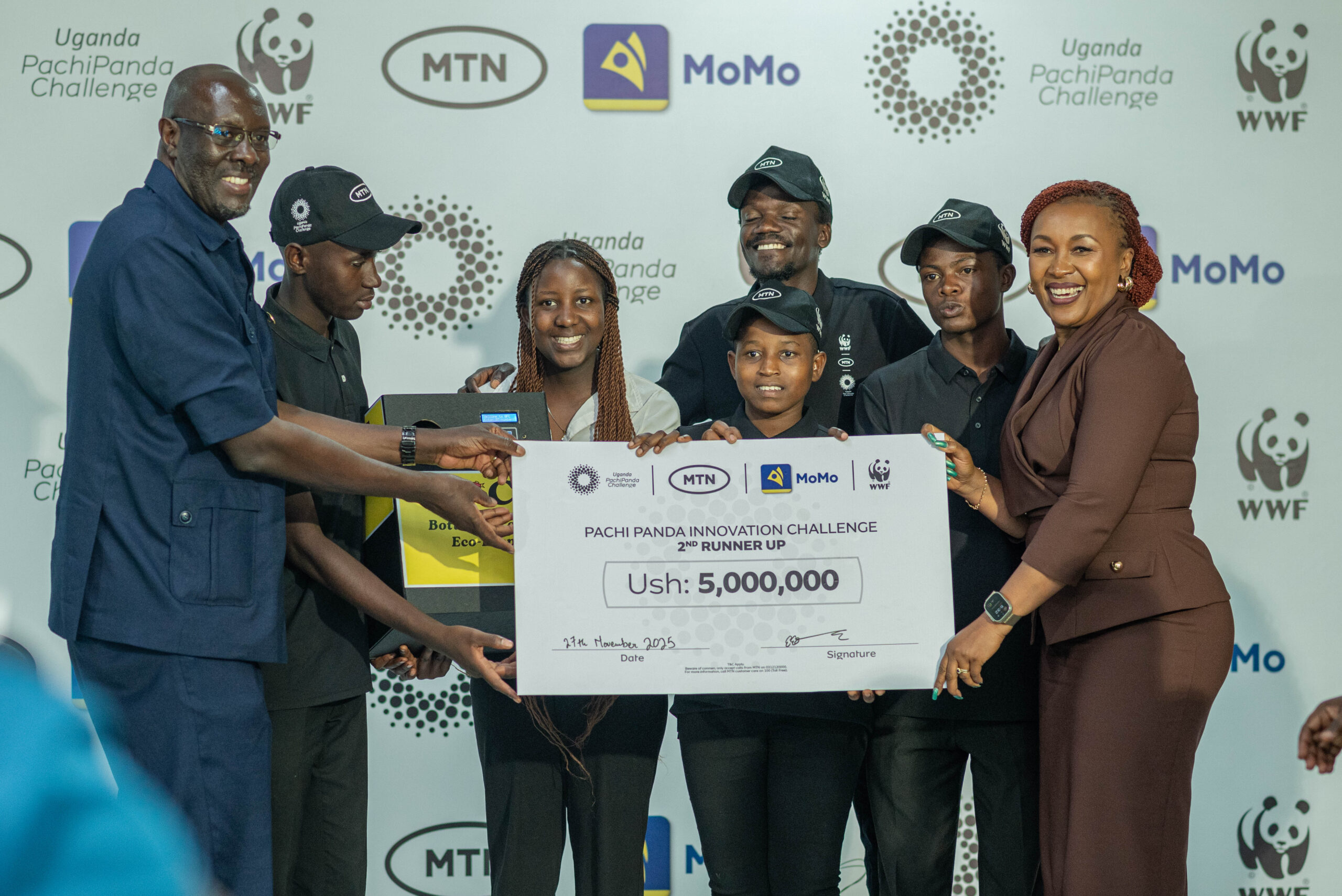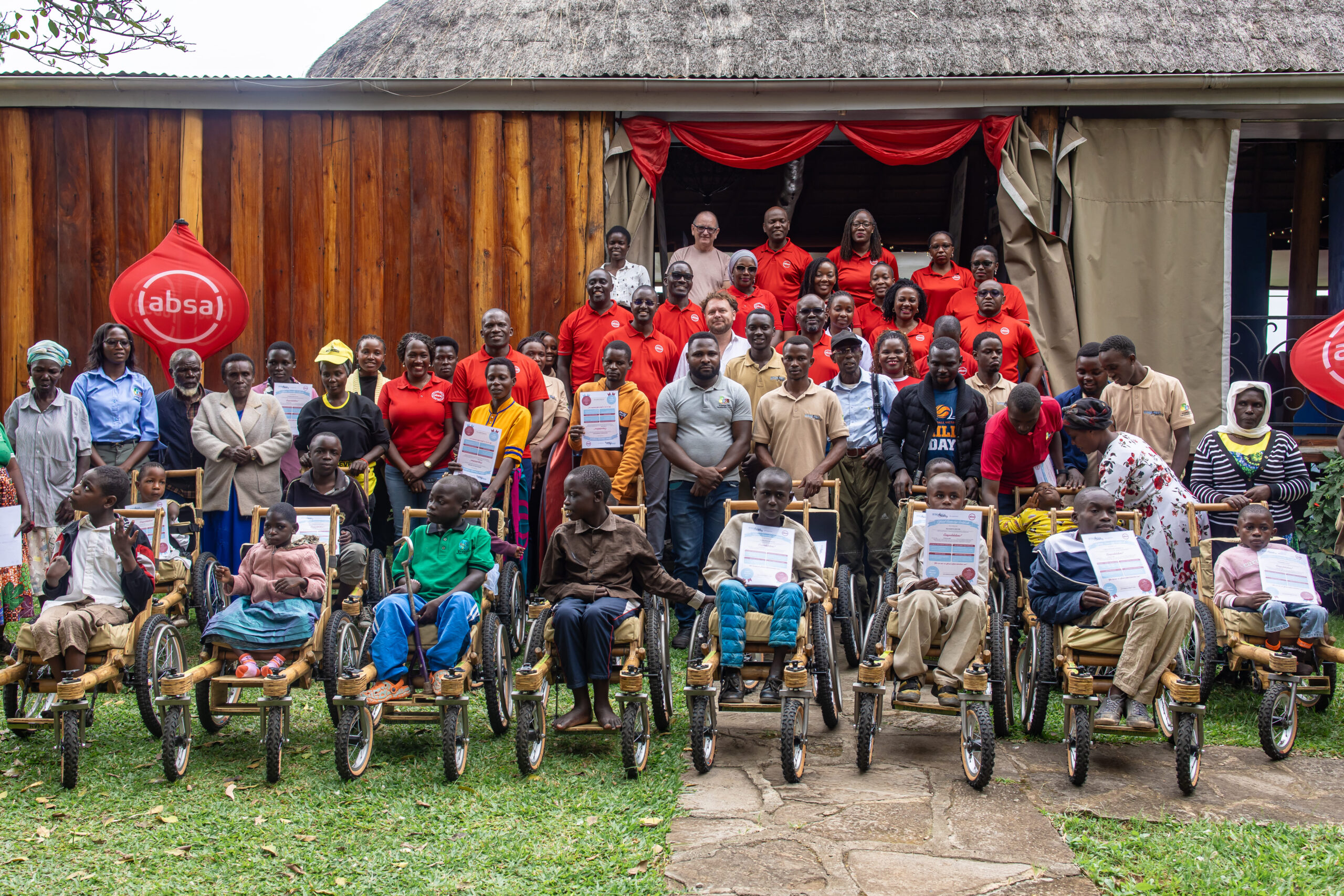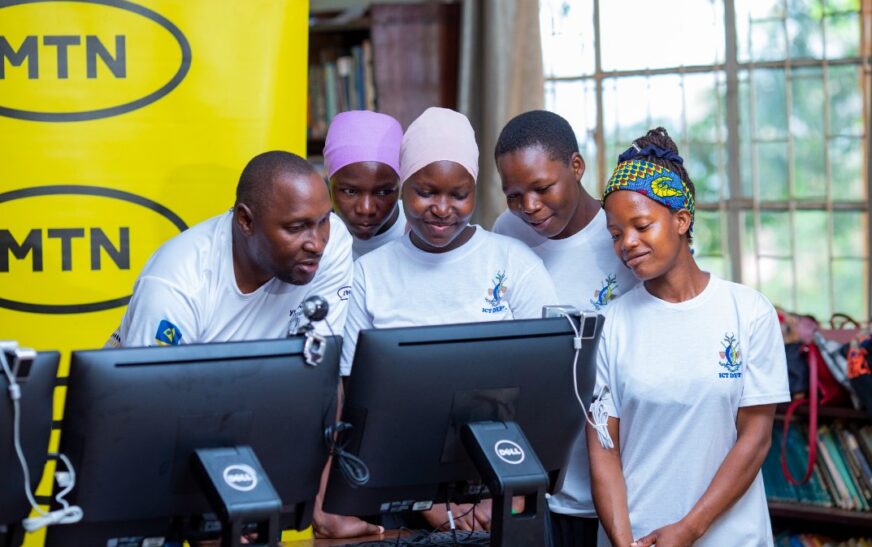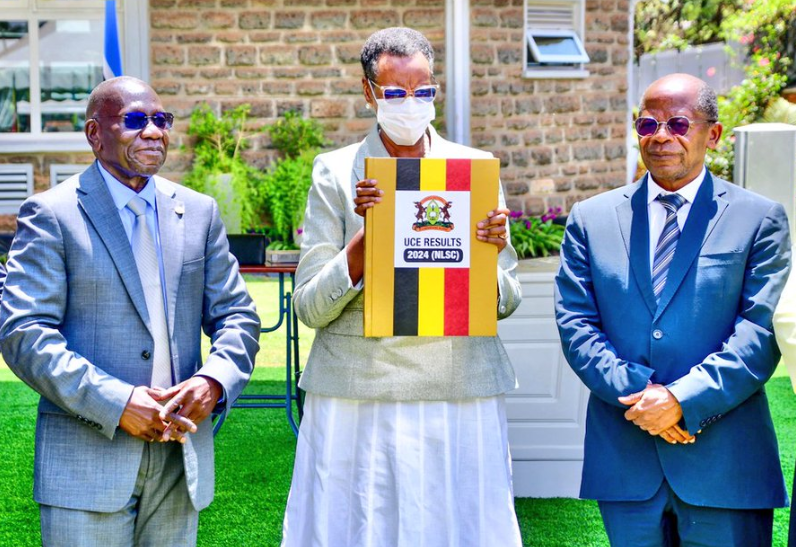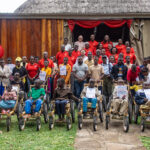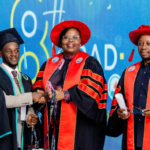Reach A Hand Uganda, through its “Undo The Taboo” and “GN Trybe” initiatives, brought together over 1,000 students from more than 20 schools across the country to spotlight the power of edutainment in advancing menstrual hygiene management (MHM). The event also showcased innovative menstrual products and sustainable disposal solutions.
Held under the theme “Youth Innovations for Sustainable Menstrual Health and Hygiene,” the event took place at London College of St. Lawrence in Maya. It attracted key stakeholders, including officials from the Ministry of Health, Ministry of Education, teachers, civil society organizations, private sector representatives, and renowned Ugandan musicians Allan Toniks and Daxx Kartel, who delivered motivational “Power Talks” on menstrual health.
Students used expressive arts—such as poetry, visual art, fashion, creative writing, debate, drama, and dance—to address menstrual stigma and promote open conversations around issues often considered taboo. These artistic performances were organized as competitions to encourage creativity and innovative thinking.
Highlights included demonstrations of eco-friendly menstrual health solutions, such as: Biodegradable incinerator prototypes made from cardboard, Reusable sanitary pads focused on affordability and sustainability.
A panel discussion tackled real-world challenges in menstrual health management within school environments, encouraging dialogue among students, educators, and policy-makers.
To honor student contributions, certificates of participation were distributed, and the top three schools were awarded trophies and cash prizes:
Seeta High School, A-Level Campus Shs 3 million (Overall Winner), London College of St. Lawrence Shs 2 million (First Runner-Up) and The Academy of St. Lawrence Shs 1 million (Second Runner-Up).
Humphrey Nabimanya, CEO of Reach A Hand Uganda, emphasized that edutainment is a powerful tool for dismantling stigma.
“Edutainment helps overcome the silence and shame around menstruation. It creates a safe space where learners feel free to share—this addresses a major barrier to effective menstrual health education in Uganda.”
Agnes Ssebowa, Senior Technical Officer for Adolescent and School Health at the Ministry of Health said; “The Ministry is committed to making every school a safe and supportive environment. Menstrual health is a matter of human rights and dignity, and it must be integrated into education.”
“Talking about menstruation used to make us feel ashamed. But today, it felt normal,” said Luke, a student from London College of St. Lawrence.
According to the Auditor General’s 2023/24 report, 64% of female students regularly miss school due to lack of menstrual materials and inadequate Water, Sanitation, and Hygiene (WASH) facilities. The report also found that 46% of 48 schools visited did not provide emergency pads or any form of MHM support, with many lacking clean water, functional toilets, or disposal systems.

